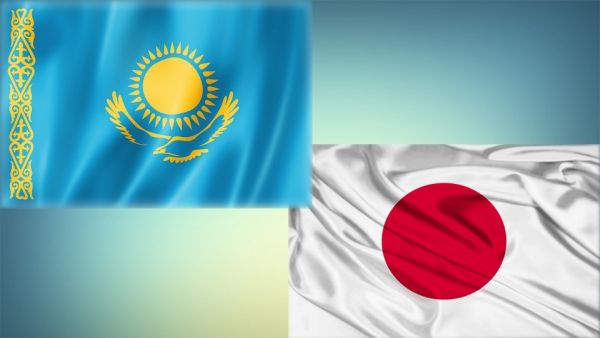by BY AIBARSHYN AKHMETKALI
This article was issued by The Astana Times.
Astana, Kazakhstan (INPS Japan) — There are many pillars in the blossoming partnership between Japan and Kazakhstan, but the common historical background and cultural exchange is what drives both countries to the next chapter of international engagement, said Jun Yamada, the ambassador of Japan to Kazakhstan, in an exclusive interview with The Astana Times.
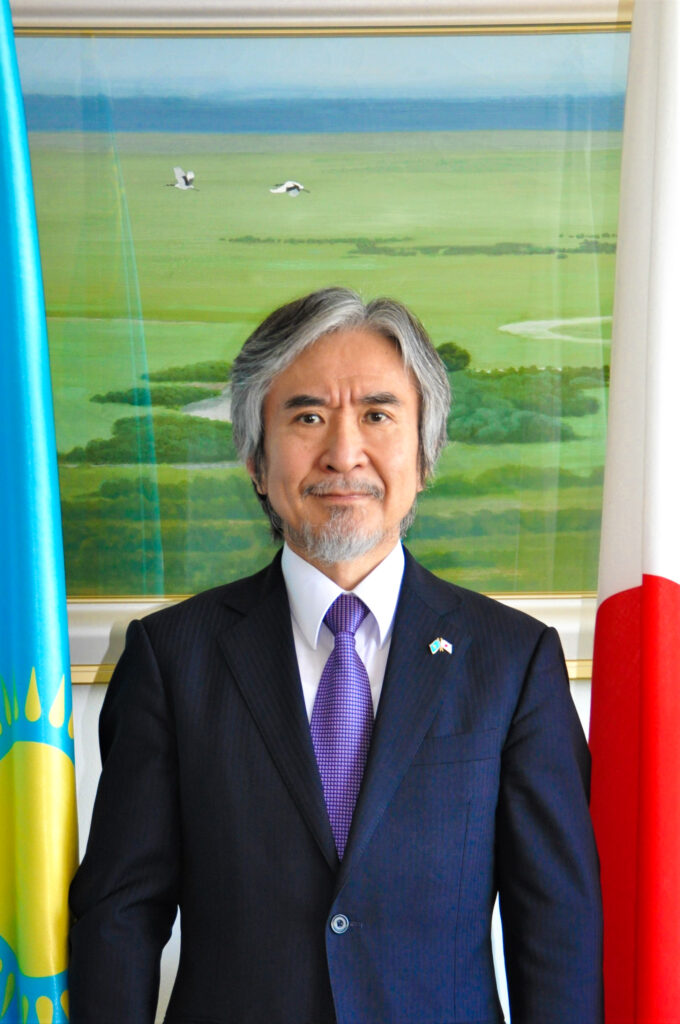
From the rich history of economic and cultural exchange to the establishment of diplomatic relations in 1992, Kazakhstan and Japan have enjoyed over 30 years of partnership.
While Japan, scattered across several islands, and landlocked Kazakhstan could seem worlds apart, there is more that connects the two nations than meets the eye.
“Immediately after the regained independence in 1991, Japan started to cooperate with Kazakhstan very closely, contributing to the most crucial areas of state building. In fact, Japan remained one of the top donors to your country throughout that initial period,” said the ambassador.
Kazakhstan is taking bold steps to strengthen its economy and that of the broader region by improving and expanding bilateral relations with key partners, including Japan.
“Looking back, I cannot help feeling the truly long way which we have come together – now Kazakhstan so successfully graduated from being a recipient of overseas assistance and with the creation of Kazakhstan Agency for International Development (KazAID) you are embarking on the new responsible role of a donor in the region and also beyond,” said the ambassador.
He described the bilateral relationship as having a “chemistry,” saying, “it is not too easy to explain it in words, but starting from our astonishingly similar appearance and almost automatic sympathy we feel from the very first moment of our encounter, that special chemistry is always tangible.”
Japan and Kazakhstan united by history
The shared historical events, some rather tragic, have always been a key pillar of the friendship between Kazakhstan and Japan. In fact, the start of bilateral relations predates diplomatic engagement, with a history of nuclear disasters in Hiroshima and Nagasaki in Japan and at the Semipalatinsk polygon in Kazakhstan, which left a devastating impact on the lives of thousands of people in both countries.
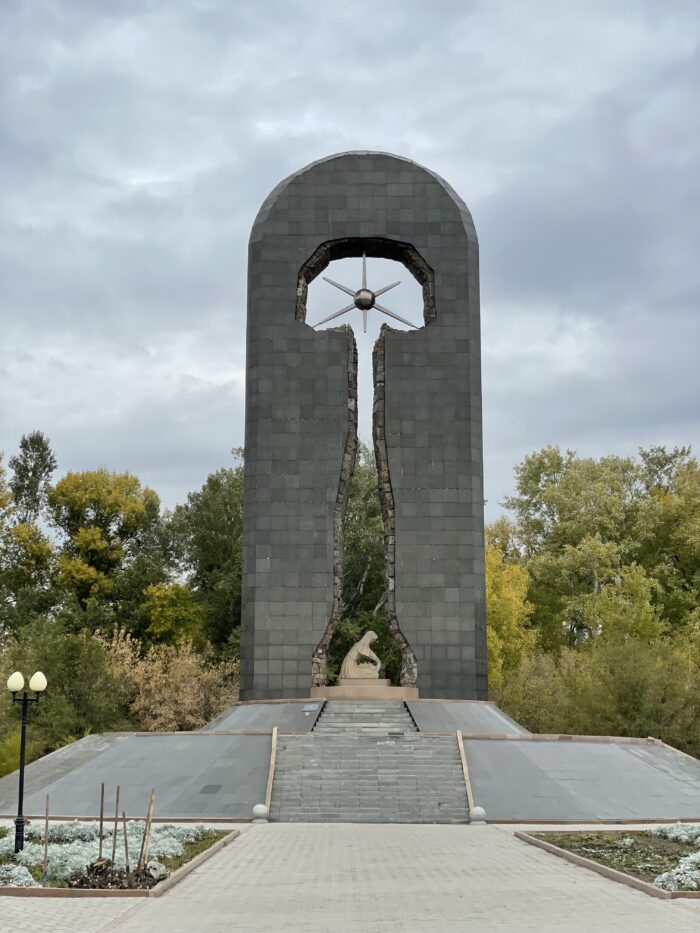
“It was very symbolic and totally understandable that immediately after the collapse of the [Soviet] regime, which brought about such evil, the Japanese doctors flew in to visit the area and tried their best to offer necessary treatments, as well as longer-term cures to improve the situation for the residents. For them, the tragedies caused by radiation was never a matter of some distant country or people but exactly their own, still-ongoing challenges,” he said.
Consequences of nuclear weapons form only one part of the deep historical roots that the two nations share.
The same Soviet regime that inflicted a man-made famine causing the death of millions of Kazakh people affected the Japanese, too, as 600,000 of them were abducted to be used in various concentration camps after World War II.
Over 60,000 Japanese nationals were sent to Gulag (Chief Administration of Corrective Labour Camps) in Kazakhstan, eventually making the country their home.
“The local Kazakh people, themselves victimized by Stalinism, showed an astonishing level of sympathy and compassion toward these Japanese prisoners and offered maximum assistance and encouragement. Thanks to this human miracle, the ratio of death among the Japanese in Kazakhstan was so much lower compared to any other locations, like many parts of Siberia,” said the ambassador.
“We, as the Japanese nation, will forever remain infinitely grateful to all our Kazakh brothers and sisters for their expression of true humanity at the possibly darkest hours of mankind’s history,” he added.
Bilateral cultural exchange
Cultural exchanges are the soft side of deepening bilateral ties between Japan and Kazakhstan, encouraging people-to-people ties among citizens.
The Japanese Culture Day organized by Kazakhstan Japan Center at the National Academic Library in Astana recently amazed local audiences with a glimpse of Japan’s rich cultural heritage.
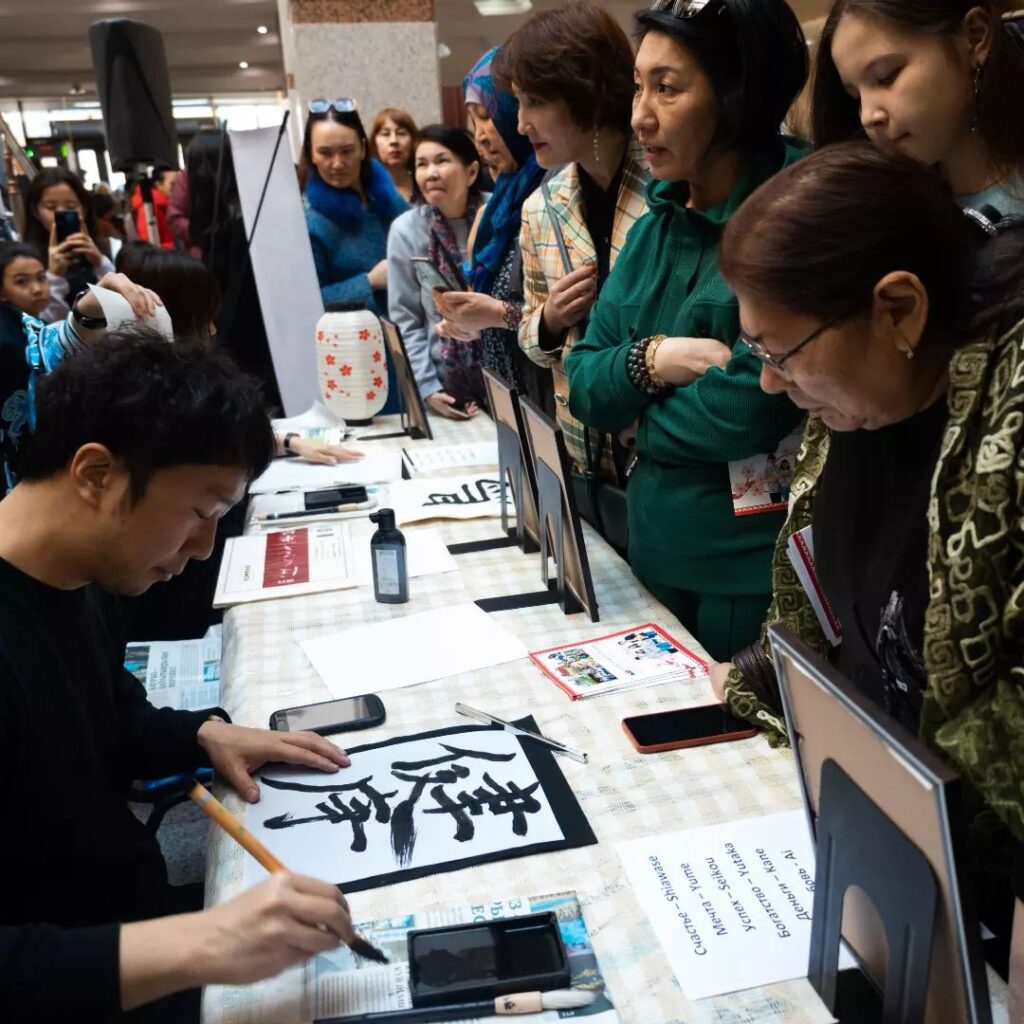
“It was just a one-day event, but astonishingly many citizens of the capital attended it. I managed to witness that with my own eyes,” said the ambassador. “I thought this was a testimony to the extent the people were impatiently craving for such an opportunity and, at the same time, a very encouraging indication of the future.”
Traditional Japanese arts, such as ikebana and tea ceremony and more recent Japanese pop culture phenomena, such as anime and manga, have stirred the interest of Kazakhs. Japanese pop culture has gained a following worldwide, and Kazakhstan, in this sense, is “going far ahead of any other countries.”
“I see the need and infinite potential to introduce the best examples of Japanese animation, both classical and the most recent ones,” said Yamada.
Music has also helped people discover what the two nations share in common and has been crucial in strengthening bilateral ties.
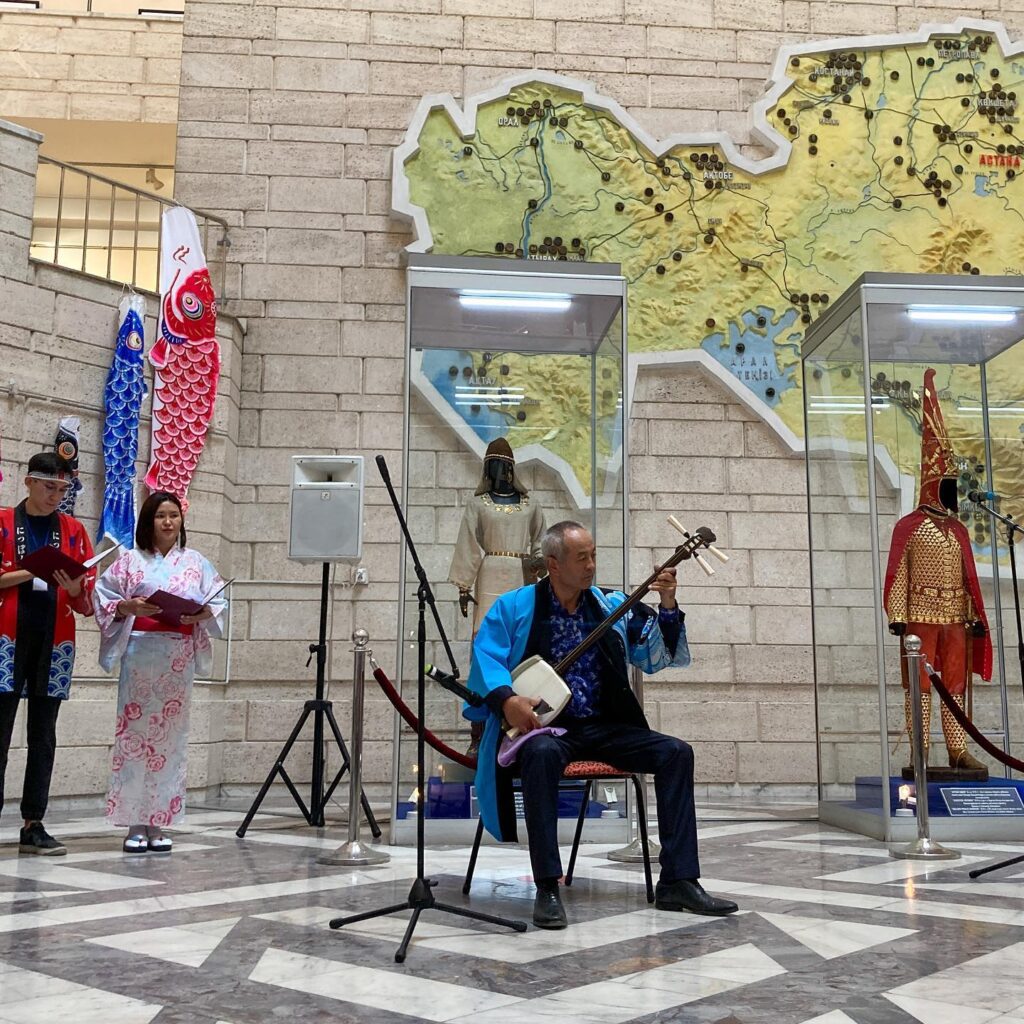
“I know that every Kazakh person is a master musician or singer in their deepest soul. Here again, our people can be one and inseparable friends through music,” said Yamada.
“I have seen a Kazakh genius who plays the Japanese shamisen (three-stringed instrument) so professionally, as well as Japanese enthusiasts who are committed to learning how to play the dombra (Kazakh two-string instrument). Some of them now participate in competitions which are normally meant for only the native Kazakh players,” he added.
“As for the popularity and fame which Dimash (Kudaibergen) enjoys in Japan, I don’t have to say much. He has already conquered the hearts of our people,” said the ambassador.
Sports
The partnership has also grown in the field of sports.
Kazakhstan’s most well-known boxer, Gennadiy Golovkin, was a real hero in Japan, fighting and beating Ryota Murata, the Japanese champion.

“All of Japan was so deeply moved when Mr. Golovkin gave his own shapan (Kazakh traditional clothing) to Mr. Murata after the match – the best expression of genuine sportsmanship indeed!” said Yamada.
“Sumo wrestling is another ultra-Japanese traditional game, but surprisingly, we now have a Kazakh hero here, too,” said the ambassador.
Kinbozan, whose Kazakh name is Yersin Baltagul, is a rising star in the Sumo world, recording 11 victories during the spring tournament in March.
“Since it was his very first time in the senior-division, this was truly an astonishing result, winning him a very special and coveted Kanto (Fighting Spirit) Prize. We wish him further successes in his future career, hopefully becoming Yokozuna (the Ultimate Champion) someday!” said Yamada.
Tourism
The relations between the two countries extend beyond culture and sports. Tourism exchange remains a significant pillar of Kazakh-Japanese ties and is expected to grow as the world continues to open up following the end of the COVID-19 pandemic.
As global tourism resumes, the Kazakh citizens are keen to enjoy what Japan offers and are enthusiastic about welcoming back Japanese tourists to Kazakhstan.
“During my first two years here in Kazakhstan, I managed to visit various regions and each time never failed to be deeply impressed by the incredible beauty and diversity of this great country,” said ambassador Yamada.
“Similarly, in Japan, there are countless beauty spots from north to south and it will be up to each visitor to choose any favorite combination of them. Although our country is so tiny and compact compared to Kazakhstan, it can offer unusually rich diversity throughout the many islands thanks to their enormous diversity in climate and geography,” he said.
The ambassador is optimistic that bilateral tourism will continue growing.
“The most desirable thing for both countries must be the launch of a direct flight in the near future,” said the ambassador.
“Despite common perception, Japan and Kazakhstan are not too far apart from each other – if and when we can fly non-stop, it should take only about seven hours. Now that the headache of the pandemic is sufficiently receding, we all keep our fingers crossed that the dream will come true rather soon,” he said.
New horizons of cooperation in green technology
New horizons of cooperation are emerging between Kazakhstan and Japan in green technology. Japan has advanced in launching renewable and green energy sources. Their decarbonization technology is used to improve energy efficiency both in production and consumption.
By 2022, Japan signed 25 joint crediting mechanisms (JCM) with countries aiming to enhance investment in greenhouse gas emission reductions while realizing joint ambitions to accelerate the energy transition towards a low-carbon future. Kazakhstan also pledged to achieve carbon neutrality by 2060.
“I am sure that the earliest possible conclusion of the JCM with Kazakhstan will definitely turn out to be a new and ideal catalyst for further investment by the Japanese business into the market in this country,” said Yamada.
He also mentioned Japan’s investment is not only about physical infrastructure but aims to be “investing in the people,” who will eventually enhance their “quality of growth.”
“The application of the latest decarbonization technology could become the most typical and excellent embodiment of our philosophy,” he added. [INPS Japan – 23 October 2023]
Original Link: https://astanatimes.com/2023/05/culture-and-history-bring-japan-and-kazakhstan-closer-says-japanese-ambassador/


